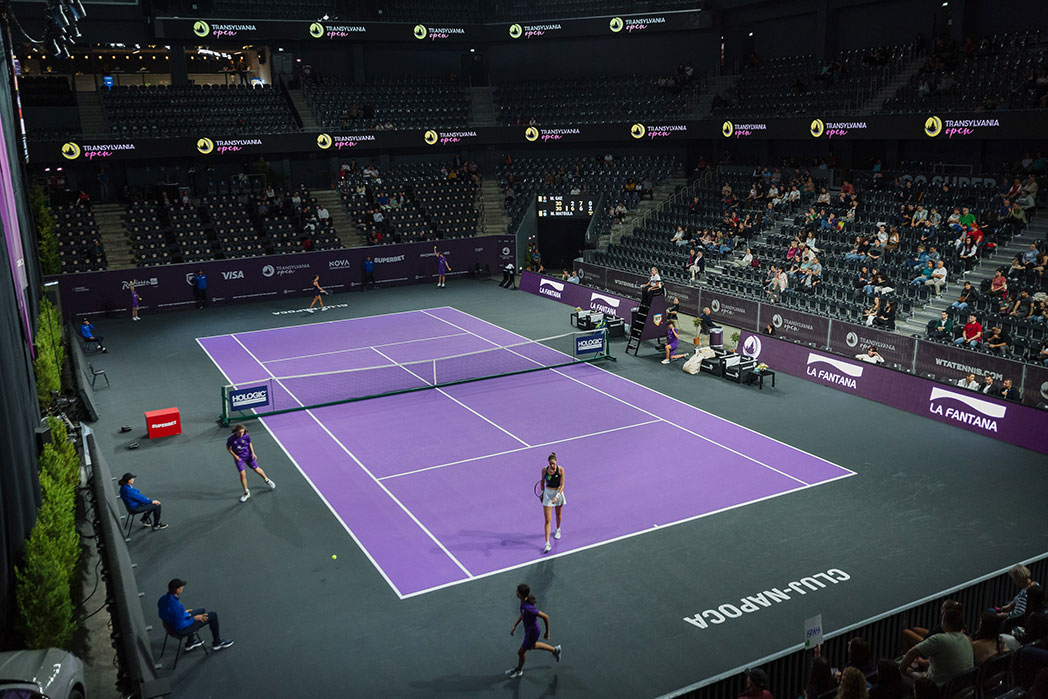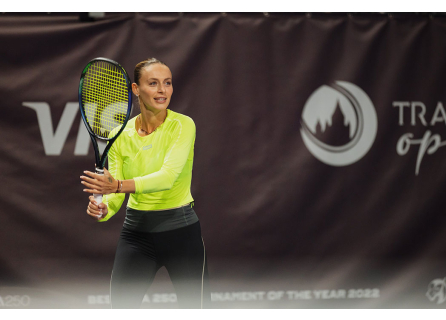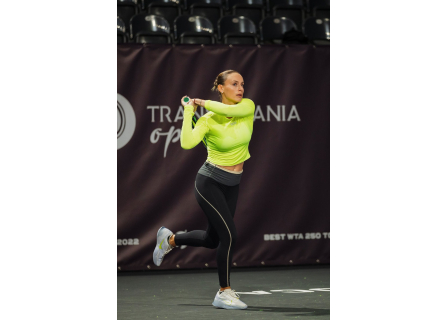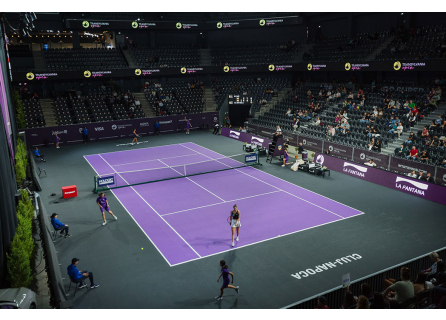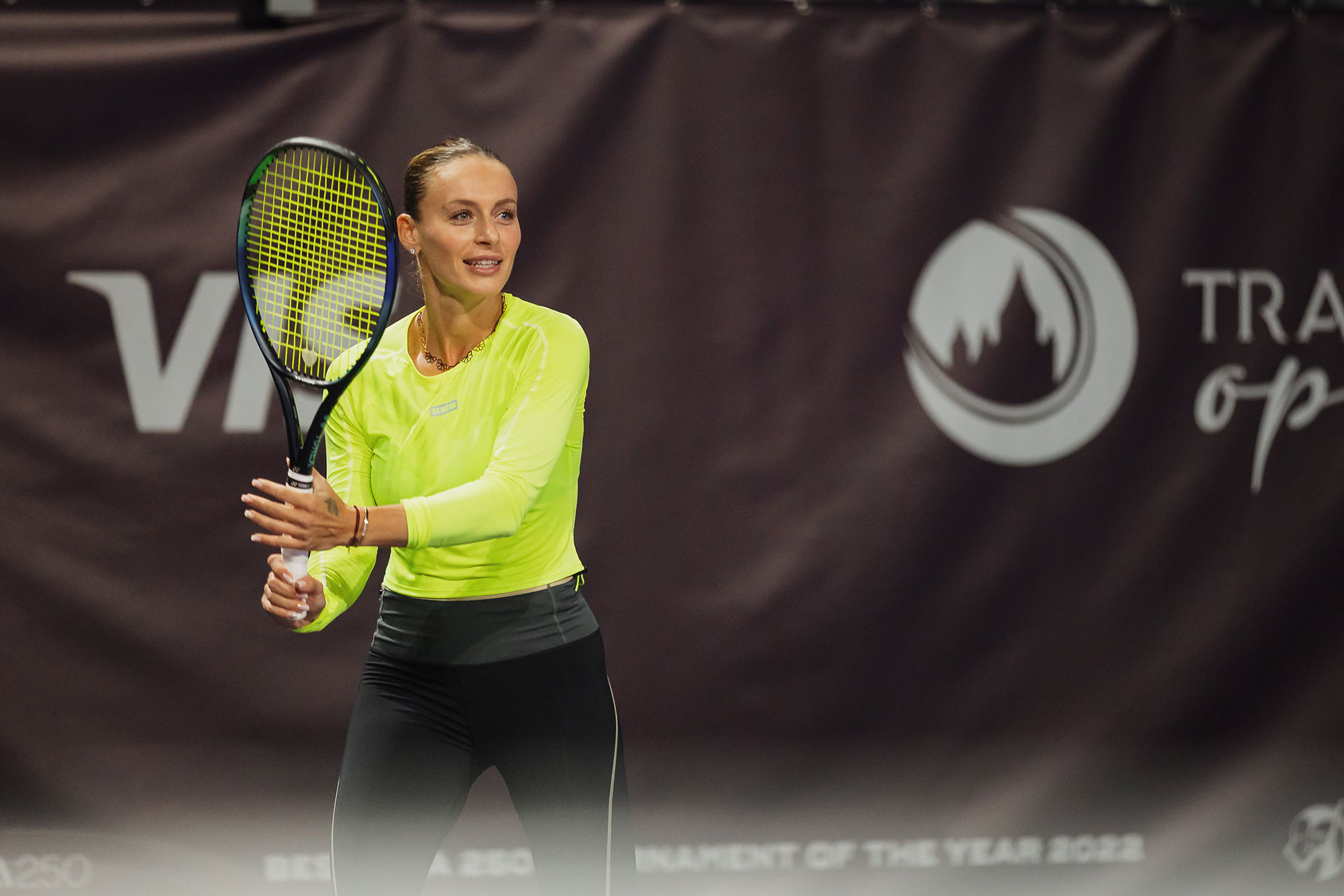
Ana Bogdan on a new path
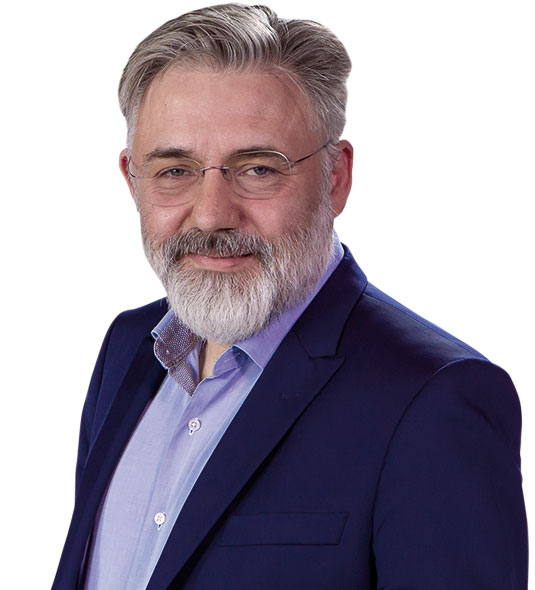 Cătălin Striblea - Is a radio producer at Europa FM, where you hear him daily on Romania Live. He also produces the column Out of the Box which airs on Sundays on Europa FM. He has a football vlog at SportExtra titled Striblinho and has been an active blogger for years on striblea.ro. He is the producer of the podcast “Vorbitorincii“ together with Radu Paraschivescu. He has been working in media for 30 years and has been through all media from online to television.
Cătălin Striblea - Is a radio producer at Europa FM, where you hear him daily on Romania Live. He also produces the column Out of the Box which airs on Sundays on Europa FM. He has a football vlog at SportExtra titled Striblinho and has been an active blogger for years on striblea.ro. He is the producer of the podcast “Vorbitorincii“ together with Radu Paraschivescu. He has been working in media for 30 years and has been through all media from online to television.
We invited radio producer Cătălin Striblea to define and nuance the idea of success, using the example of a sport we feel close to. One reason is that, after almost a quarter of a century of activity, La Fântâna looks both retrospectively and introspectively to the past and future plans to define and better understand the parameters of its success.
And so far, the story of our company's success overlaps with the idea of success achieved through ambition and perseverance, highlighted in the article below, which we invite you to read.
Ana Bogdan on a new path. "I am grateful"
On July 18, 2022, in Palermo, it is 32 degrees at 7 p.m. There is no wind on the clay at Country Time Club. Towards evening, the temperature rises. A wave of African air comes towards the island and it's the worst time to play tennis. You need a lot of water and ice.
Ana Bogdan's luck is that she now has a 10-minute break. The match against Sara Sorribes Tormo took a bad course. After a controlled first set, Ana lost in the second. She blames herself for how she played in the second half. She's alone in the air-conditioned locker room and enjoying the coolness. She considers her thoughts cold, even if she can't stand air conditioning at all.
The Spaniard asked for a rest time and, in high heat, the referees agreed to a 10-minute break between the second and third sets. Ana also has time for a shower, a change of equipment, and a lot of hydration. She knows that all the sun is waiting for her outside and an opponent with her spirits up. The referee accompanying her tells her it's time to go on the field. She carries a huge orange bag and two bottles of water with electrolytes. She comes pressed and thoughtful.
And then it explodes. The table says she is penalized for delay. She's already 0-1 and 0-30 and she's about to get a fine for leaving the locker room late. The match is interrupted for 7 minutes and 4 seconds. Ana argues with the referee, the supervisor, with the tournament director, asks for explanations, and brings arguments. Fight like an endless rally. She is not successful and the decisive set starts from the minus. She does not recover and loses the match.
Not only does she lose, but she enters a black cloud. She locks herself in the room "one day, one night, and one more day." "The team calls me, they text me if I'm okay, but I don't want to talk to anyone. " I didn't need anything, I didn't want anything, I would sit and look in the rules to understand what happened to me." But from those solitary days came change. The biggest change. "For me, that moment was like an impulse. I said I had to do things differently. I've changed through faith, through what I tell myself, through what I do, and by how I act." "At some point, a thought came to mind. But what if I created that moment because of the tension I was going through? What if I had done that to myself? I had played the first set well, in the second we were 4-1 and from there I lost and I was very nervous. It's clear that I need to change something inside to stop creating such situations. It's clear that I need to be more balanced. And I started working with myself."
Manifesting positive energy
Since then, Ana has a whole repertoire of good words that she says to herself. She stops arguing, she encourages herself, she pulls her, and she talks to herself. "Come on you can, let's go a little longer, come on you'll get through this, come on it's going to be okay. Come on, I know you're fine." Laugh. "I say it out loud, but you don't hear me. I say, there, for myself. Then I give myself a tactical indication. Play longer or tee" Ana smiles at me and tells me feverishly. She sincerely believes in the power of positive energy. She paints me a picture of two people. One of flesh and bones, which also gets tired, and an energetic one, which pushes the other from behind.
This energetic shadow her to take the title from Palermo. "I was sick. I was sick from Cincinnati. I couldn't find myself, I couldn't breathe properly. At one point I had a fever, and I looked like I had a cold. I took a Covid test and it was negative. I was also sick in the match against Kenin. No doubt I lost it. "She came to Bucharest and was still sick. At one point she fell on the field. She pulled herself, won, then lost. In Parma, she was sick since the first match. She wanted to give up but pushed on it until she felt like she would break. "Now I have no doubt I had Covid. I have had tests done and I have antibodies in huge numbers. It's just that it kept me going for a long time. I realized that the body has limits that we don't know of." So came the victory in Parma. With enormous pain, but also with a flood of kind words addressed to herself.
She's been through this before. "Again, I didn't think I was capable of that." With Tsurenko at Wimbledon, I wanted to drop out of the first set. I couldn't even see where I was stepping. I got dizzy. I was leaning against the rocket. I think I had sunstroke. I was telling those in the stands, I'm sick, I'm sick... And they told me to drink water. And I kept pushing at least the first set to do it, and I kept getting dizzy. And I said let's do the second one. It was like we were two people. One who fainted and one who said come on, you can." They played together the longest tie-break in women's tennis history. 20-18. "I had a match ball, it hit my body and I misfired the volley. And today I'm sorry. I was a little devastated." She smiles and turns off the light on her blonde face.
Loneliness is the most complicated thing in tennis
All the great players complain about those moments in the match and career when they get into trouble and are stressed by the decision. "You are alone when you enter the field, but there are many people with you outside of it," says Ana. Her loneliness, however, is different. Ana hugs her, sometimes wants her, feeds on her, and finds energy from there.
"I forced myself to do everything by myself. I decided to take pressure off myself. It seemed to me that everything others were saying was a form of pressure." The moment she's talking about is Roland Garros 2022. "I was playing with Azarenka and I wasn't able to apply what I was told. I was so tense that I couldn't do what I was told. I told the coach that we would end this and I left with my madness: to train alone. I didn't want any more pressure. "The pressure came from home, though. Everyone was telling me, Simone (Tempestini, her boyfriend), and my family, all of whom I was meeting with: do you do it alone? Yes, I want to see what it means to do it alone, to listen to my body, to impose and overcome some limits on myself... when I feel like I can't and need to do two more sets. And I tell myself, do two more sets, that you have to do them, that these bring you that plus to the match. And somehow I did my job myself." She laughs loudly and lightens up. "You know what I was like? I depended on the people I was with. I was always staring into the stands. I was looking at the team. And if I was wrong, only with my eyes on them I was looking for solutions. I don't think it was ok. You have to find out for yourself. And you don't have time to think. It's instinct and intuition. You have to do what you feel, and here the grandstand does not help you. And, yes, you have to be very careful about your condition."
She thinks for a second. This year she played in Dubai. She left without a coach, only with a sparring and sister. "And not to overthink, not to complicate things, I kept telling myself here and now. Here and now, here and now" She doesn't succeed all the time. "In Parma, it took me two balls to get past a stupid thing. But you have to be so positive that people think you're crazy. In Bucharest, we turned in the first game from three match balls for the opponent. And so I said to myself, here and now."
She pauses for a moment. "Don't get me wrong. You need a coach, the people in the team give you confidence, and you rely on them. But I needed to learn how to do it myself." Ana Bogdan has collaborated with Daniel Dobre, more recently. At the beginning of autumn, Daniel told me during the tour in Bucharest "Here we stay until the end. Anna's fine." The great experience felt the peak of form, but success would come a week later in Parma.
"You can't imagine how well and peaceful I am now"
Lately, she even lives in Cluj and it is a bit atypical to stay at home when she has a tour. "At least now I don't have the pressure to win for my close ones. That it's home, that people know me. I'm fine. I found a state of joy and tranquility. I'm happy, I'm fine. In fact, I am much more grateful. I imposed a change on myself. And it could only come from within me."
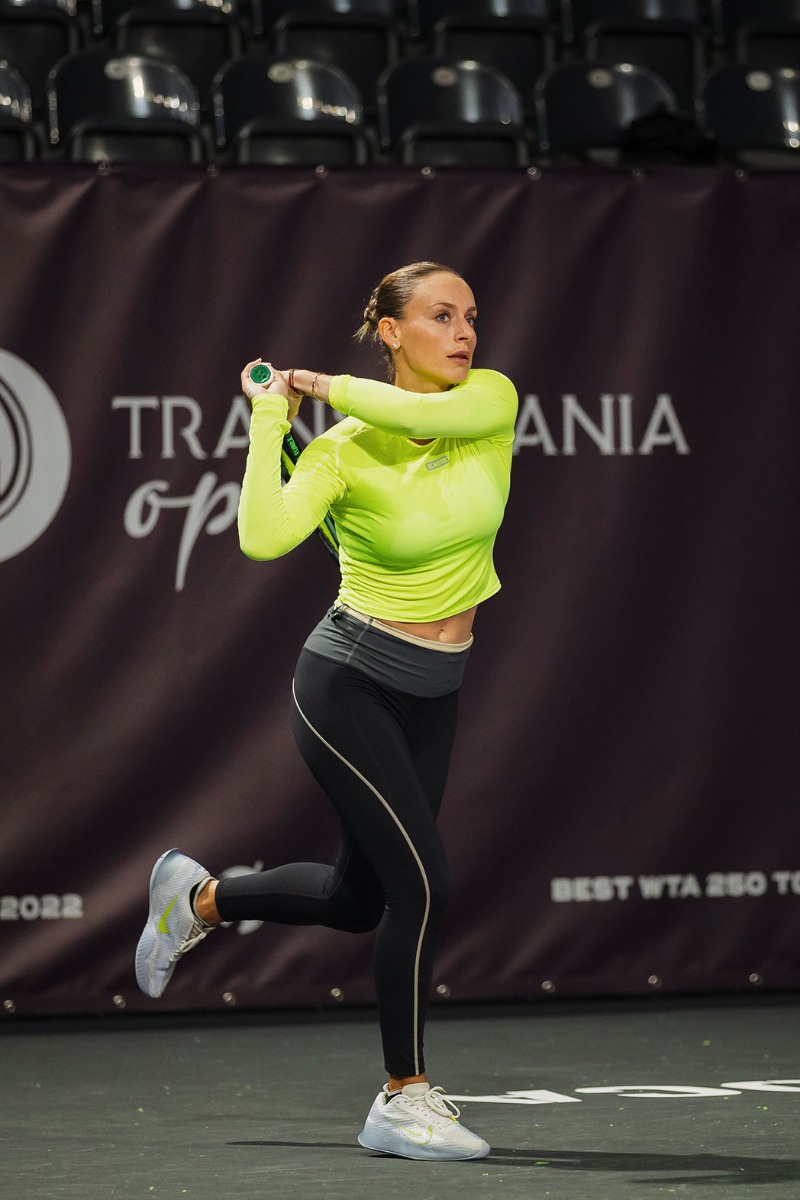

Without saying it, Ana's journey shows you that she is a winner in the battle with herself. After 20 years of tennis, she can measure ups and downs. But also a constant: the way she solved her dilemmas on her own. At the beginning of 2021, in St. Petersburg, she quit tennis. "I led in the first set and won 6-2, then took a bad beating, 6-2, 6-1. I was sitting on the pitch and all I wanted was for the game to end. And as soon as I got out, I picked up the phone and called everyone. "I'm ready to quit tennis, I'm quitting tennis." Which she did. I hid the rackets, the equipment, and everything related to tennis. And 45 days I went about my life. Try Simone again, don't you want us to make a match? No, I don't play tennis anymore. After 45 days, I came back, but still under pressure."
It's not the only time she's quit She did it before when she was 23 when her parents told her they couldn't support her anymore. "There was no more money. And that's when I wanted to play the last tournament of my life. I knew I was done with tennis. But I had no money. I called my cousin and told him to take me on his own money to a WTA 250 in Austria And he took me, even though I hadn't even qualified. I waited for someone to retire and entered the qualifiers last with the 1st favorite. I was pissed that I had failed badly. I beat her, did two rounds of the main draw, and beat Tomljanovic, and that's how I stayed in tennis. With the money from there, my cousin and I went to another tournament and somehow they connected."
It wasn't the first time she had quit. As a teenager, she was ranked second in the junior world championship. But an injury and two years of failure followed. "I've been playing tournaments in Antalya until I got bored, but there's a competitive system that doesn't give you ranking points. I was playing to have matches, but nothing was working. And I came home and said I'm quitting. But my mom and dad wouldn't let me." Maybe the only time I didn't do it on my own.
She stops a bit. She's been talking for an hour. There is a bottle of water next to her that she hasn't touched. "I don't drink coffee because I have to sleep at least eight hours tonight." She looks through me to a complicated past. "It seemed to me that everything I do, I do badly. That I make bad decisions. Even in America a month ago. But now I'm fine. And grateful. I've always wondered what it's like to be in the top 100 in the world, and then in the top 50 in the world. I realized that 39 (her highest position) was just a number. Because you are the same. And you have to shoot every day to be the best. And I want to reach as high as possible."
The tournament in Cluj is just a moment when she can build for this "as high as possible". Sporty and in the ranking. Without saying it, but certainly feeling it, however, Ana is the highest in the battle with her mind, with her pains and insecurities. She has never been so peaceful, peaceful and balanced. Despite the loneliness she seeks from time to time. It's the end of a journey of 20 years of searching, and perhaps the beginning of one she now enjoys.
